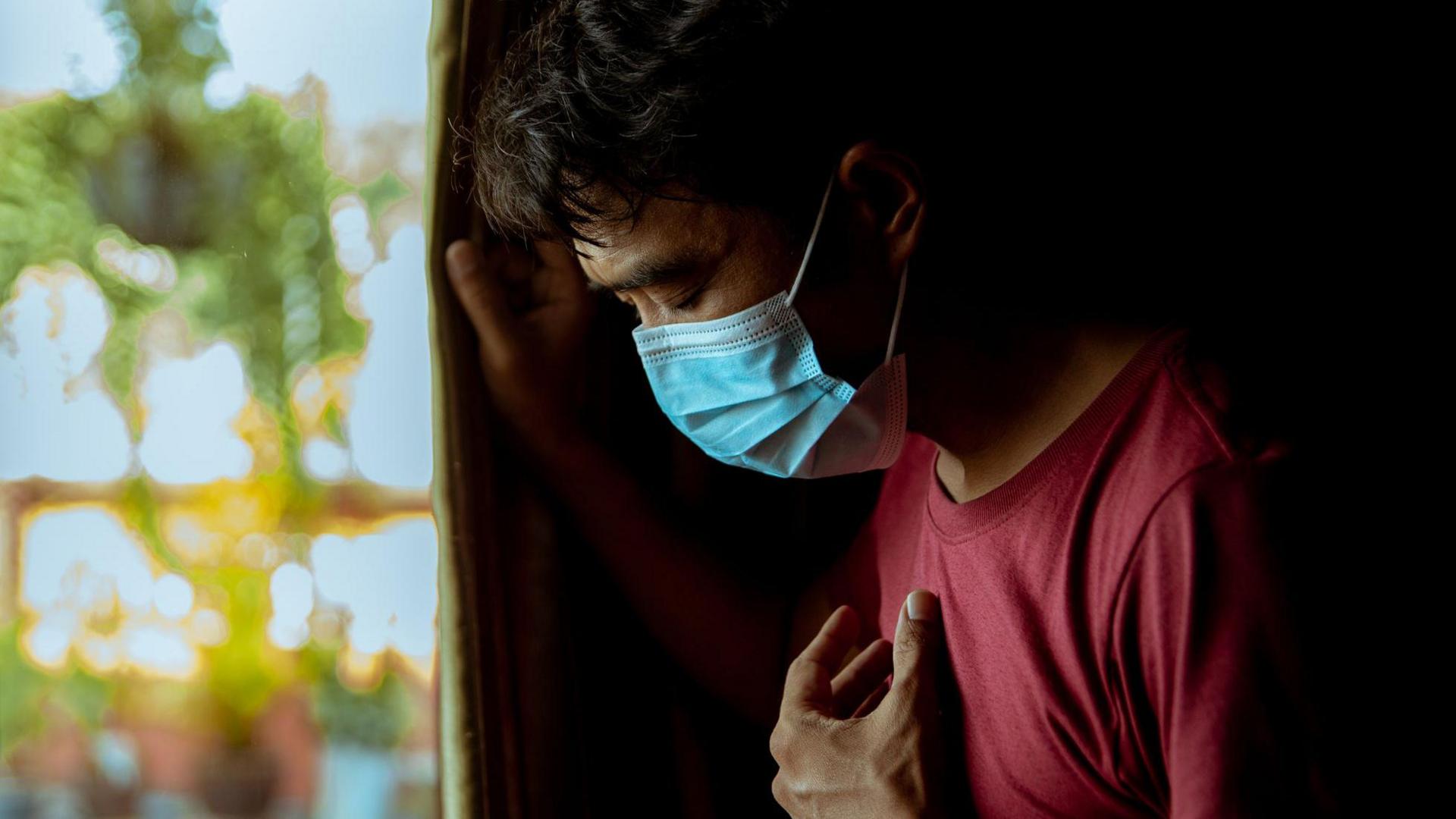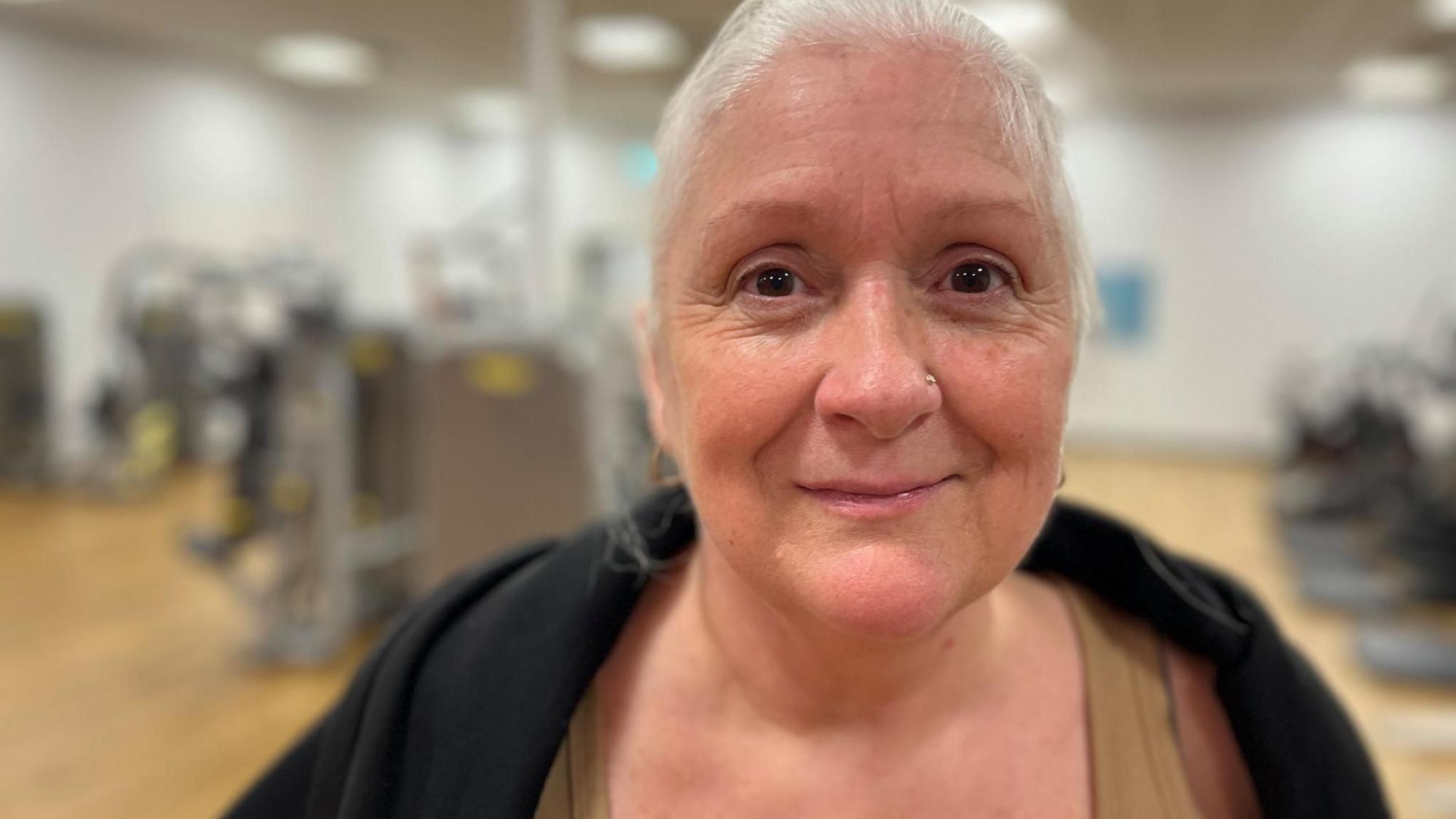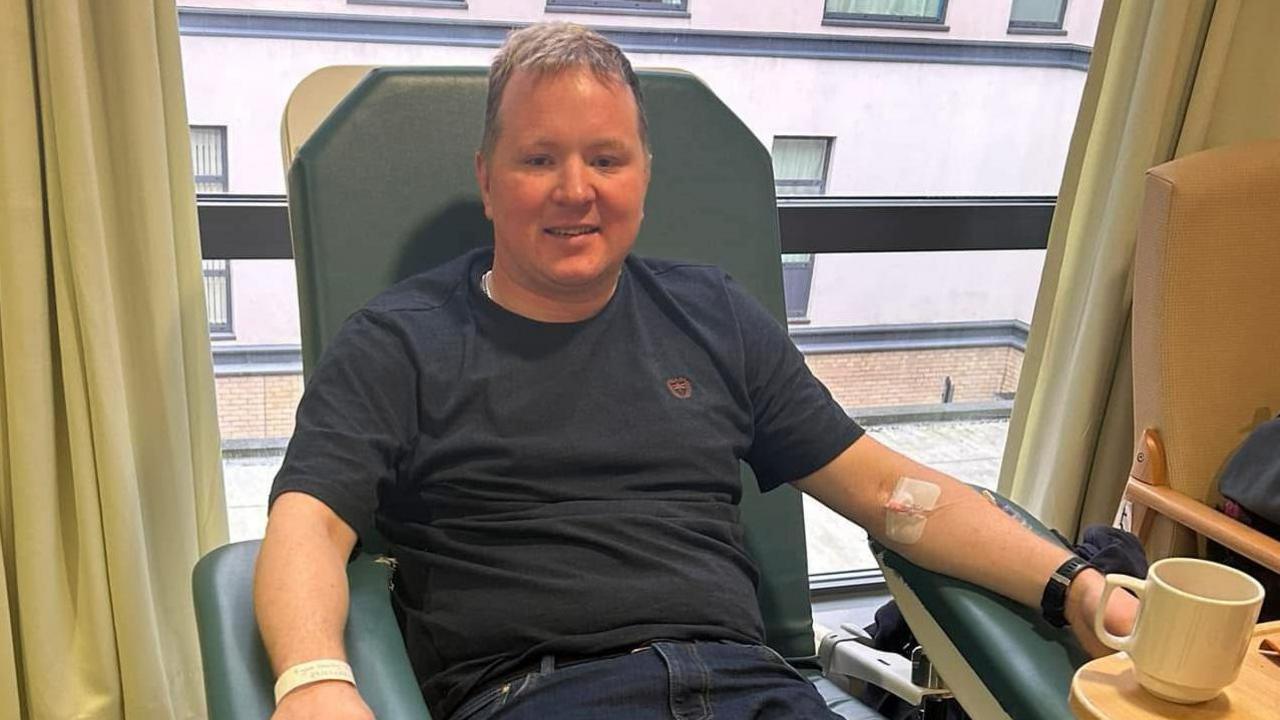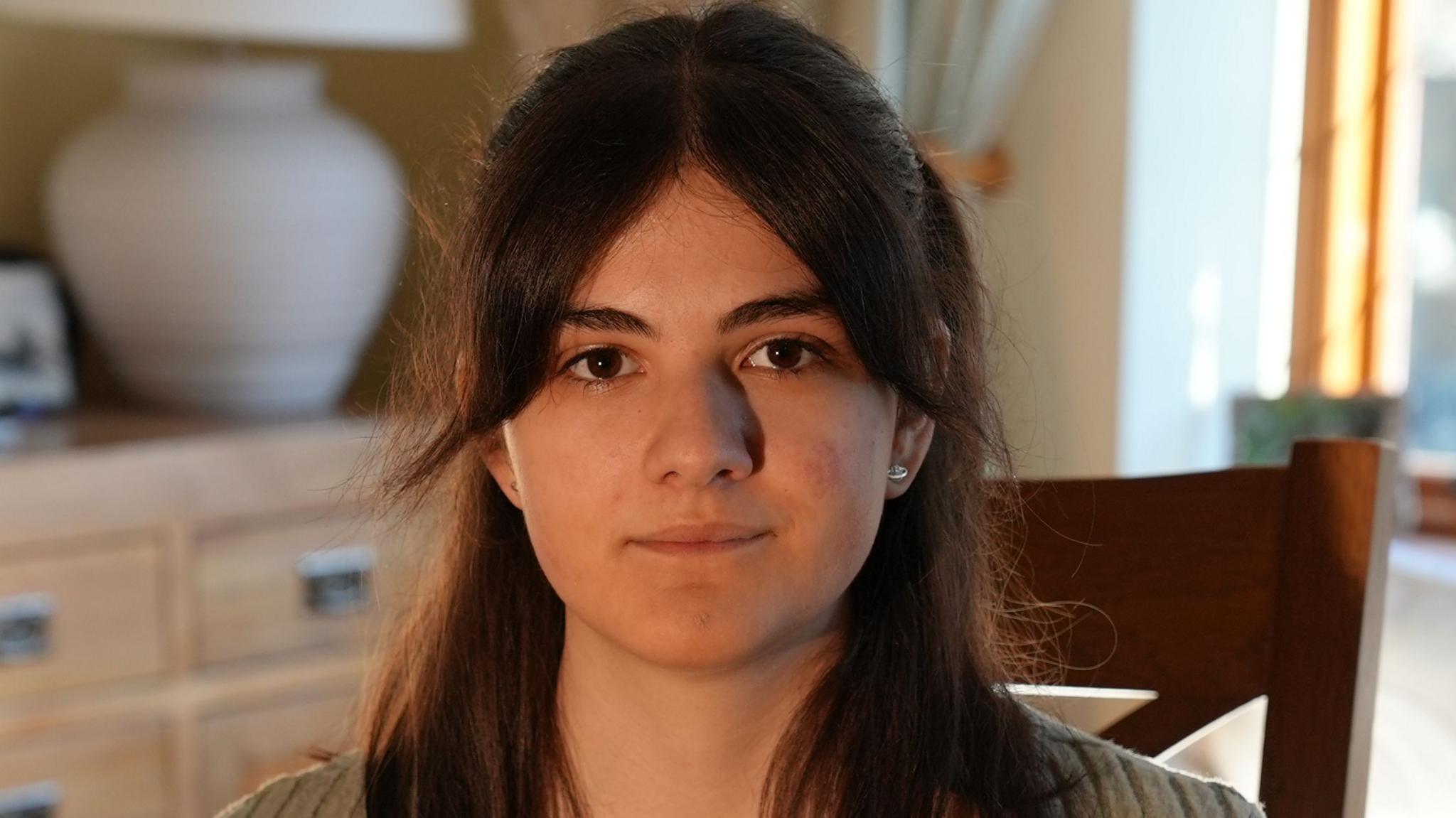Long Covid patients gaslit by medical professionals, study finds

A University of Surrey study found patients living with long Covid felt dismissed by medical professionals
- Published
Patients living with "long Covid" faced "dismissal" and "gaslighting" from medical professionals, research has found.
A study by the University of Surrey found participants were relying on data self-gathered from smart watches and phones to track symptoms and advocate for diagnostic tests.
A total of 30 participants, aged between 25 and 62, were recruited from three online long Covid support groups and interviewed about their experiences living with the condition and using self-monitoring practices to track their symptoms.
NHS England has been contacted for comment.
Dr Sazana Jayadeva, a research fellow at the university, said a "shift was needed in medical culture" following the findings.
Dr Jayadeva, who co-authored the study, added: "We found that people with long Covid are often led to fend for themselves in a system that isn't adequately informed about their condition and doesn't offer them appropriate medical support."
Fellows heard that 12 participants had straightforward experiences of obtaining a diagnosis of long Covid based on their symptoms, but others had struggled, "facing gatekeeping from the medical practitioners they consulted".
'Fear of work'
Two participants, named as Lauren and her adult son David, both recounted "exeriences of poor treatment from the medical profession".
David told researchers: "It was a nightmare. They were basically gaslighting us, saying that we didn't have [Covid] in the first place."
Another participant, Sonja, told researchers that when she initially approached her doctor about recurring low-grade fevers, he suggested they were a psychological symptom of her "fear of work".
Sonja said: "So the Long Covid doctor I saw, he knows some things and also he calls himself a specialist. But, on the other hand, he applies gaslighting and uses some weird explanations for some things. With the recurring fevers, he was just like, 'uh, you are afraid to go back to work'. And I was like, 'no, [. . .] I really want to go back to work'."
The study reported her doctor was only willing to investigate further and prescribe treatment after Sonja presented him with months of data from her digital thermometer.
These experiences were "especially common" among those who had developed the condition in 2020 rather than in later years.
The research was conducted in collaboration with Professor Deborah Lupton from the University of New South Wales in Sydney, Australia and received an ethical go-ahead from the Department of Sociology at the University of Cambridge.
Confidence boost
The study also found that online patient groups contributed to "the uptake of self-tracking technologies" and found that having wearable data gave patience "greater confidence to advocate for themselves" in medical settings.
Many participants still felt their data was "disregarded or even resented".
Dr Jayadeva added: "We urge practitioners to treat patient-generated data as a valuable resource. Without this shift, patients with contested illnesses like long Covid risk remaining stuck in a system where they have to be their own doctors."
There is no cure for long Covid - and currently no standard test. There are also more than 200 recognised symptoms, the most common being fatigue, breathlessness and brain fog.
The full study was published in Sociology, a flagship journal for the British Sociological Association.
Update: This story was updated on 26 August 2025 to remove mention of GPs.
Follow BBC Surrey on Facebook, external, on X, external, and on Instagram, external. Send your story ideas to southeasttoday@bbc.co.uk, external or WhatsApp us on 08081 002250.
- Published16 July

- Published21 March

- Published22 March
